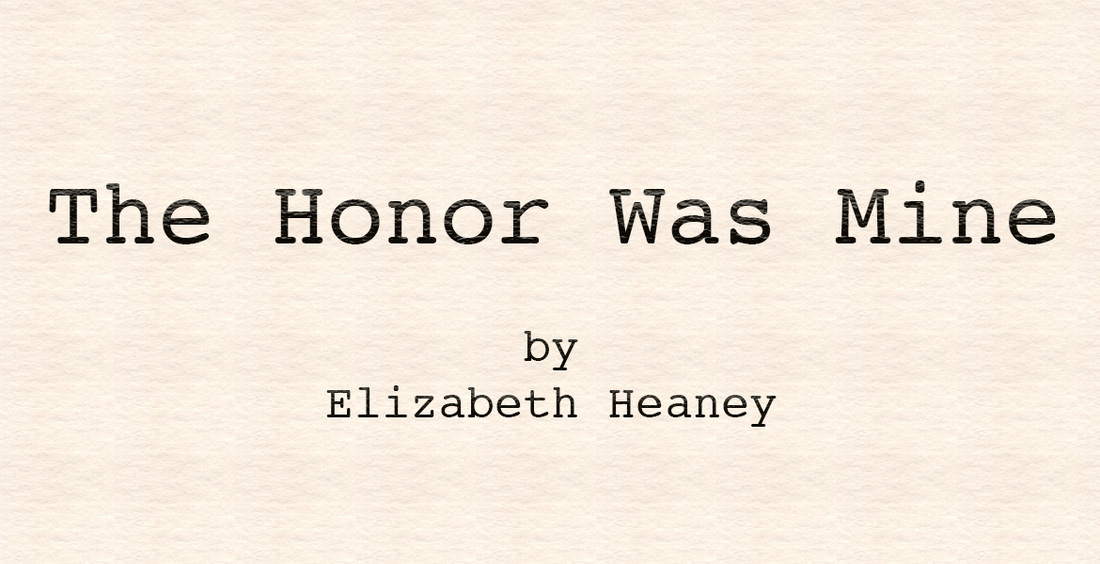 Dear Friends, I’m so very pleased to let you know The Honor Was Mine, my book about counseling combat veterans, has just gotten a contract for publication. I truly couldn’t be happier. Wild thanks to Renee Fountain of Gandolfo Helin & Fountain Literary Management – she’s been terrific to work with; I am ever-grateful she understood the heart of the book. Release date is Sept. 2016 (go ahead . . . I’ll wait while you mark your calendar). : ) Thanks to all who’ve been supportive along the way. I hope these soldier stories are just getting started on their journey. Previous Comments:Bob says:
danny johnson says:
 In the swirl of horrors and reactions related to last week’s torture report, I came across this very fine essay written by an Army veteran who later worked as a civilian interrogator at Abu Grahib. When we think about the issues surrounding torture, we rightfully focus on those who have suffered from being tortured. Eric Fair poignantly and powerfully reminds us that those who torture might also suffer. He doesn’t hold back in confessing his culpability – he also gives us a chance to understand how his own choices and actions haunt him to this day. You can read it here. Previous Comments:Kat says:
Jenifer Morgan says: Friends . . . I’m delighted to let you know that on Veteran’s Day ( Tuesday, Nov. 11) I’ll be interviewed on NPR by Frank Stasio during his talk show, The State of Things. The segment, based on my work with combat veterans and my forthcoming book, The Honor Was Mine, will air from 12:20 – 12:40 (EST). In Asheville, you can listen to it on WCQS – 88.1. Online (or via mobile device), you can hear the show live at: http://wunc.org/stream-change. If you miss it live, please visit wunc.org to listen to the archived interview. Thanks to WUNC, Frank Stasio and producer Will Michaels for making it possible! Previous Comments:danny johnson says: Cindy C says: Miriam says: Daphne says:  After reading my last post – the one about the officer who reached out for help, the officer I nudged toward a colleague as my stint ended – a dear friend asked, “What would you say to that soldier if you saw him again?” Great question. I’d say this: “Sir, it’s been several years since you and I sat together, but I have not forgotten you. I have not forgotten your anguish or your despair. I have not forgotten the courage it took for you to reach out, to speak about your crumbling world. I have not forgotten the profound honesty you brought with you each time we met; I have not forgotten your tears, or your relief in facing all the things that had gotten jammed up inside. I have not forgotten the way you were just beginning to find the edge of hope. I remember all of those things so clearly; I can picture each exchange we had, even after all these years. I also have not forgotten how very much I wanted to handle things differently during that last phone call, when I told you I was leaving the base the next day. I’m more sorry than you know. You deserved better. You took a risk. You asked for help. You told me – with blazing vulnerability and sincerity – all about the web of pressure and stress that you were caught up in. You let me see how desperate you were; you held nothing back. You deserved better. I didn’t follow my heart in that moment. I was the good employee instead of the gracious counselor. Please know, Sir, if I had it to do over again, I’d toss the rules. I’d offer you my number and tell you we could talk as long as you needed to in order to get things lined up again inside your heart. I’d say, “I’m right here. Let’s keep going.” Those rules I was following? They’re part of the reason I couldn’t keep doing that job. I couldn’t bear to turn someone like you away when all you wanted was a safe place to say, ‘Please help me.’ You have my sincere apology. And you have my utter care and concern.” Previous Comments:lai says:
People ask me what was the most touching (or most difficult) thing about working with the military, and there’s innumerable rich or challenging moments I could list on both sides of that question. I’ll mention a few in my next posts . . . I’d just finished a briefing to a large auditorium of soldiers, telling them about the counseling services I offered on the base. I kept emphasizing that it was confidential – nothing would go in their records. My cell phone rang as I walked back across the base to my office. “I just heard you talk about your program. I never knew we could get counseling that wouldn’t go into our records.” I assured him: no notes, nothing in his files, his commanders would never know he talked to me. “I’ve been desperate. I’ve been praying for something that would help me. I think this might be it,” he said, his voice choked with emotion. “When can I come in?” “I’ll be in my office in ten minutes and . . .” I said; before I could finish my sentence, he said, “I’ll be there.” A few minutes later, the high-ranking officer dropped into the chair across from mine and put his head into his hands. When he looked up, his black hair was swirled and spiked from the way he’d pushed his hands through his hair. His face looked sadder than any face I’d seen in a long time, his eyes filled with angst and his mouth tight with tension. He began to talk about an issue he’d been struggling with for years – an issue that would interfere with his career if it became known. Recent work assignments had dramatically increased his stress levels, and he was beginning to crumble with the tension of his personal issue and the job stress. He had never spoken to anyone about his concerns, and he cried as he told me about how unbearable things had started to feel. When our time ran out on that first day, I asked if he wanted to come back the next day. He wordlessly nodded and thanked me profusely as he left my office. The next day, he again poured out all the anguish he’d been trying to manage. He came in a third time in that first week. I felt like I was watching him find some steady ground under his feet after years of treading roiling, dangerous waters of stress and secrets. A few days after his third session, he called to let me know he’d been temporarily assigned to a distant base for a project. He told me our conversations had been greatly helpful, and he would call me as soon as he returned. Weeks passed, and I didn’t hear from him. I thought of him often, and kept hoping he was still doing well. The day before I was leaving that base to move to a new assignment, he called to tell me he was back from his project and wanted to continue our exchanges. When I told him I was leaving and wouldn’t be able to talk to him, he instantly got choked up, “What am I going to do? I need to talk to you.” I assured him he could continue his work with the counselor who was replacing me. “But I don’t want to talk to someone else. You already know me. You already helped me. I don’t want to start over again.” I heard the despair creeping back into his voice. “I’m so sorry,” I said, “I have to hand you off to the new counselor.” According to my contract, I was not allowed to have contact with service members once I left a particular base. While I could see the reasoning behind this restriction (wanting soldiers to access the arriving counselor rather than trying to work long-distance with the departing one), I chafed at it. And in this instance, as the officer said good bye and hung up, I felt bad for sticking with the rules. All the reasonable logic in the world didn’t weigh an ounce when up against the anguish that man was swimming in. To this day, I wonder what happened to that officer. I wonder if he got more help. I wonder so often how he’s doing and how that issue unfolded. And I feel I made the wrong choice. I stuck with the rules; I did my job as assigned. And I regret it. Previous Comments:Sara pearson says:
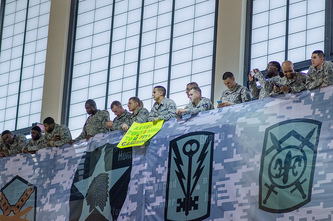 PFC Cassini and I stood on the steps of the battalion building, chatting while he finished smoking a cigarette. Just twenty-two years old and recently back from deployment, he shook his head and said, “Damn. I don’t like being in the Army.” Then he told me he was going to re-up when his contract ended in the next month. When I asked why he would re-enlist, he said, “It’s for my mom, ma’am. She’s not doing too well back home – she’s sick a lot. My dad was never in the picture, so I send her part of every paycheck.” He dropped his cigarette on the ground, smashed it with his boot, then picked it up and put it in his pocket. His shoulders slumped with the burdens he carried as he walked back into the building. ~ ~ ~ ~ ~ In the shade of a huge oak tree, forty or more soldiers waited for their parachute jump. PVT Davidson and I stood off to the side of the group, talking about how he had found his way into the Army after growing up in a tiny town on the plains of Montana. “I didn’t have a very good upbringing, ma’am. Even when I was four or five, my parents didn’t care whether I was home or not. They didn’t do much parenting at all, to be honest with you. I eventually got involved with drugs. I thought the Army could teach me how to grow up, how to be a man.” “You’ve been in three years now – is it working out?” “Oh, definitely. You wouldn’t believe how much I’ve changed. I always wanted this kind of structure and focus.” ~ ~ ~ ~ ~ CPT O’Brien was a Special Forces medic, as tough and dedicated as they come. After we chatted for a minute, I asked him about his accent. He laughed. “I guess you can tell – I’m from Ireland. I’ve been in this country almost fifteen years, but I still have the accent, don’t I?” When I asked him how he’d landed in the military, he replied, “9/11, ma’am. This country had given me so much, when those planes hit, it was time I gave something back.” ~ ~ ~ ~ ~ “I’m fourth generation military, ma’am. Proud to carry on the tradition.” LTC Markham and I were standing just outside his office and I’d asked him how he’d come to be in the military. If there was a warrior archetype, LTC Markham embodied that spirit: tough, sharp-minded and exceedingly involved with his troops, he was one of the finest leaders I met during my years working on bases. His men looked up to him, trusted him and were happy to serve under him. ~ ~ ~ ~ ~ I stood behind a soldier in the line in the dining facility. He was from Nepal, and he told me he’d signed up because he would get his U.S. citizenship after serving. I met folks from at least seventeen different countries who joined for the same reason. ~ ~ ~ ~ ~ “There’s no jobs back home,” said one private from the inner city. “At least this is a steady paycheck, a way to get to college, and some training I can use to get a job when I get out.” I spoke with a sergeant who was excited his military training as an avionics technician would get him a high-paying job when he left the Army. A young specialist from Texas was happy he was learning to work on the engines of huge trucks and armored vehicles – he had plans for being a big-rig mechanic when he got out. Another soldier hoped his training would (one day) get him a position on the detail serving in the White House. ~ ~ ~ ~ ~ Contrary to what some people might assume, in all my conversations with service members, I never met a single one who signed up because they had a passion for combat. They had innumerable reasons for agreeing to military service; most had to do with improving their life circumstances. I have a suggestion: next time you meet a service member, sit down and ask them why they signed up. Might be an interesting conversation. 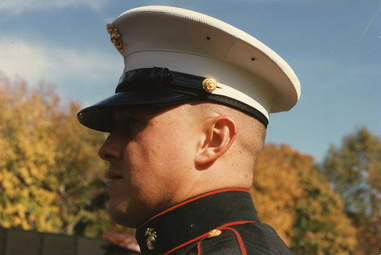 So there, I was . . . sitting across the table from the dinner guest who stared at me with hard, challenging eyes. The others at the table had turned toward me and the conversation had fallen silent. I slowly flipped my knife back and forth, feeling pressured to come up with an answer to “why do people sign up for the military?” I looked at the flickering candles and tried to slow my heartbeat before I said, “It’s a good question. I’m just wondering. Have you ever asked a soldier why they do what they do?” “Ask a soldier?!?! Where the hell am I going to find a soldier?” he said, sitting back in his chair and folding his arms across his chest. “Oh,I don’t know – maybe at the V.A. or a Memorial Day event or at the airport or whatever. I just thought they might be the right person to ask. Their answers might surprise you.” He waved his hand at me as if to brush off my ridiculous suggestion, and I saw the understanding-gap that exists between the military and civilian worlds. I watched him push back from the table to walk away, and I had great compassion for what it might be like to be in the military and have so many people judging you, without ever talking to you or trying to understand. I really meant it: why not ask a service member or a combat veteran? Why not sit down and say, “So tell me, why did you sign up? What do you like about being in the military? What does it mean to you?” I just thought if my dinner friend could ask – and truly hear the soldier’s response – there might be some lessening of the great divide between military and civilians. The evening of my reading, when the peace activist stood in front of me demanding to know how I could possibly work for the military, I motioned to the couches right next to us, and said, “Let’s talk about it.” “How could you work for an entity that creates war?” she said with the familiar accusatory emphasis. “Well, look at it this way,” I said. “That same military put me – a civilian counselor – on bases to support their troops. That’s astounding, don’t you think? For the first time in the history of the military, folks could get free, confidential help with the burdens they carry.” She sat back in the couch’s pillows, shaking her head to indicate my comment didn’t really satisfy her challenge. “Well, it doesn’t mean the military doesn’t fight wars, but something must be changing if they are dialed into the fact that service members need more help, right? A couple of wars ago, soldiers couldn’t even admit they suffered from combat.” In both of these instances, I didn’t expect to change anyone’s mind – but I guess I wanted to interrupt the assumptions and judgments. In the years I worked on bases, I talked with thousands of soldiers and spouses; I spoke with privates and commanders, infantrymen and engineers, Marines, sailors and airmen. I learned a lot about why soldiers (and marines, sailors and airmen) did what they did. In my next post, I’ll tell you about some of their answers – surprising, varied, sometimes touching answers. Stay tuned. Previous Comments:sara pearson says: danny johnson says: dagmar says: Linda says:
At a friend’s dinner party some weeks ago, the guests pushed their empty dessert plates toward the center of the candle-lit table and leaned back in their chairs, chatting and enjoying the ambience. The host asked me about my writing, so I talked about the soldier* stories for a while. I finished by saying how poignant and fulfilling my work with combat vets had been. Just as I finished speaking, the man seated directly across from me at the table leaned forward on his elbows and said forcefully, “Here’s what I want to know. Tell me this: why the hell would anyone sign up to join the military? I mean, who in their right mind would do that?” His eyes bore into me and his voice was accusatory and harsh, as if a person joining the military was some fault of mine. I sat still for a moment, wondering how I might respond. It was clear to me from the way he asked the question that he didn’t really want to hear an answer – he was more interested in voicing his judgments of those who served. The table went silent and everyone looked at me. I’d heard various iterations of this question many times during my years working with service members. The majority of people who learned about my work were interested, curious, even grateful. But there were always those who seemed to feel a kind of moral offense at anything related to the military. One hot summer morning when I was in between military assignments, I met a group of friends for coffee. A woman I didn’t know arrived with a friend as we dragged a bunch of chairs over to a big table on the shaded patio. As I mentioned the assignment I’d just left and the base I had worked at, she screwed up her face in disgust and said she couldn’t fathom why someone would be in the military: “Look at what they have to do. Who would do that? Unbelievable . . . ” Months later, I did a reading in front of an attentive audience. As the soldier stories landed in their hearts, I saw a few people with tears streaming down their faces. I finished the last paragraph and put the excerpt away in my folder, then turned to see a line forming with people who wanted to speak to me about what I had just read. A tall, heavy-set woman stood third in line, and when she got her chance to talk, she said, “I’ve been very active in peace politics all of my life. How can you possibly work in the military? How can you justify being a part of that?” She was almost angry in her demeanor – challenging, confrontational, demanding. In my next post, I’ll talk about how I responded to these questions – and how they brought me into more compassion for the service men and women I worked with, their spouses and their families. * I was using the terms “soldiers” generically, meaning the combat vets I had worked with from all branches of the military. READ PART 2 Previous Comments:Tracey says: Anna says: Dona Kingsley says: 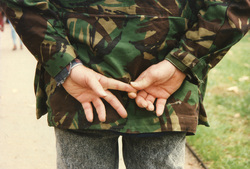 If you want to understand PTSD, you could listen to discussions of neurotransmitters and physiology, biochemistry and brain function, coping strategies and adaptive behaviors. But when I worked with combat veterans, PTSD arrived in stories: CPL Springer* hides in his closet to feel safe, even though it has been seven long years since he returned from Iraq. When he tells me about the closet episodes, he acts like he’s confessing some terrible transgression, he’s helpless in his shame. But it’s the only place he ever feels safe. SGT Devereaux admits he studies the sides of the road in his neighborhood for hidden enemies; his voice nearly a whisper when he tells me he can’t go over to his friend’s for dinner because it’s just too hard to leave the house. “I go to work, and then I go home. That’s it. That’s all I can manage. Everyone at work thinks I’m fine. They don’t know I can’t leave my house anymore.” SPC Higgins sobs when he describes spending his combat year in a tiny vehicle looking for IEDs. He felt too isolated from the men who followed behind him, the men who relied on him for their safety. The combination of enormous, relentless pressure and daily isolation has left him feeling broken. And there was the slight young soldier from Texas who sat across from me in an empty dining facility, talking about his recent stint in Afghanistan (he’d been back a few weeks). We were surrounded by uncomfortable preformed plastic chairs and stained Formica-topped tables. I don’t remember his name, but I remember watching him slip into a kind of trance as he spoke – his grey eyes glazed, his words strained and halting, “We did night missions a lot, so now I don’t sleep. It gets dark, and something inside me switches on, like there’s something I should be doing, something I should be watching for. You get used it that feeling, you know? It feels like everything depends on you staying alert. So, it’s automatic. It gets dark outside, I click into ‘alert.’” PTSD doesn’t seem like one thing to me. It seems like a wild, ugly carnival that takes each service member on a different horrible ride. The triggers, the reactions, the fears, the overwhelm, all idiosyncratic and slightly varied. However it operates, it can get reality so twisted it’s hard to find the way back to steady ground again and again and again. The best description of PTSD I’ve ever read was in MAJ Damon Armeni’s very fine New York Times article. His story captures the sudden helplessness and fear that can flood in like a tsunami, pulling a veteran under and tossing them about – and the dedication it takes to find the way through. You can read it here. * All names, ranks and physical descriptions have been changed to protect privacy. Previous Responses:Daphne says: Lu Rudolph says: Sara pearson says: Carrie Brown says: maggie morton says: George D says: Memorial Day Remembrances I watched the light fade out of SGT Devereaux’s eyes.* A strikingly handsome soldier with shaved head and colorful tattoos, he’d been joking around about an incident the previous day where he’d hit the ground after a car backfired nearby — the kind of strained ‘funny’ story combat veterans sometimes tell about their PTSD reactions. He’d ended the story with a big laugh, head thrown back and eyes sparkling. Then he began to speak about the nineteen year old soldier who hadn’t returned from a mission seven years ago, a young guy he’d taken under his wing and steadied when they deployed into the wild chaos of Iraq. “His truck got blown out from under him. I’ve never been able to make sense of anything after that,” Devereaux told me, his eyes now flat. On Memorial Day, as we remember service men and women who have given their lives in combat, we should also extend our compassion to those who stood next to the ones who died. We have grave markers and memorial services for those who never returned, but the combat brothers and sisters, the buddies, the friends who fought beside them carry less visible markers, a wound to their souls that is unseen, but tender and lasting. I’d been a psychotherapist in private practice for nearly thirty years when I took a job counseling troops returning from combat in Iraq or Afghanistan. I was assigned to several different bases during my two and half years in that role, speaking with thousands of combat veterans and their spouses. As we talked about the challenges of re-entry, I often found us sliding into hushed, halting conversations about the moment they lost their friend. No hardened warriors in those conversations; their faces would drop in sorrow, their sadness raw and abiding. They coped in a variety of ways. Some stayed angry many years after the friend died; their bitterness could suddenly lash out at anyone who revived that hurt. Some harbored such deep grief, they couldn’t bring themselves to say their buddy’s name. Others embraced rituals for their dead comrades: toasting them before taking a drink; keeping a worn photo tucked behind the credit cards in their wallet; paying somber tribute each time the date of that fateful firefight, IED explosion, or sniper hit rolled around. Or some, like Devereaux, seemed to go dead inside, sealing off the pain in a way that could keep them distant from friends, partners, and other service men and women. I saw a pristine example of quiet grief mixed with profound respect when I watched a staff sergeant preparing his uniform to escort a buddy’s body back home. His white-gloved hands moved slowly, reverently as he measured and re-measured the position of each medal on the chest of his uniform until he knew each one was placed perfectly. “He was my soldier, ma’am,” he said quietly. LCPL Davidson’s grief was more vivid. A muscled, compact Marine with grey eyes, he turned away to compose himself when he recalled his combat buddy dropping away from him as they waded through a firefight in Afghanistan. His eyes brimmed with tears, and waves of pain crossed his face as he recalled the moment when he felt his friend’s body fall against his own, then drop to the ground. Although war deaths might have diminished in recent years, every single loss affects those who served with the fallen – affects them for the rest of their lives. A Vietnam vet I spoke with was puzzled about a heavy fog of depression that hampered him for several days, until he remembered it was the anniversary of an airman-buddy’s death in the jungles of Vietnam. Even though he hadn’t consciously remembered the date, his psyche, fully oriented to the loss, had plunged him into grieving. So this Memorial Day, remember the fallen, but remember as well that any time you’re talking to a combat veteran, you’re most likely speaking to someone who’s lost a friend (maybe many friends), someone who is moving through life with a burden you don’t necessarily see. You don’t need to bring it up or press the veteran to tell the story – but simply by knowing the cost of combat deaths to those who came home, you can share a bit of the weight. We all can. *Author’s note: all names, ranks and physical descriptions have been changed to protect privacy. Previous comments: danny johnson says: Charlie Mills says: Bob says: Marlena says: Bob Day says: winnie says: Daphne says: lynn wilson says: Sara Pearson says: Luther Rudolph says: Ann Quinn says: Lynne says: Michael says: Karen says: LuAnn Keener-Mikenas, LCSW says: Paul says: dagmar says: |
Elizabeth Heaney - AuthorClinical Psychologist, teacher, private counselor. She speaks and writes about her work with service members. Archives
November 2020
Categories
All
|
|
All content (C) Elizabeth Heaney except where noted. All rights reserved, 2016.
Web design by GraphicMedia Design
|
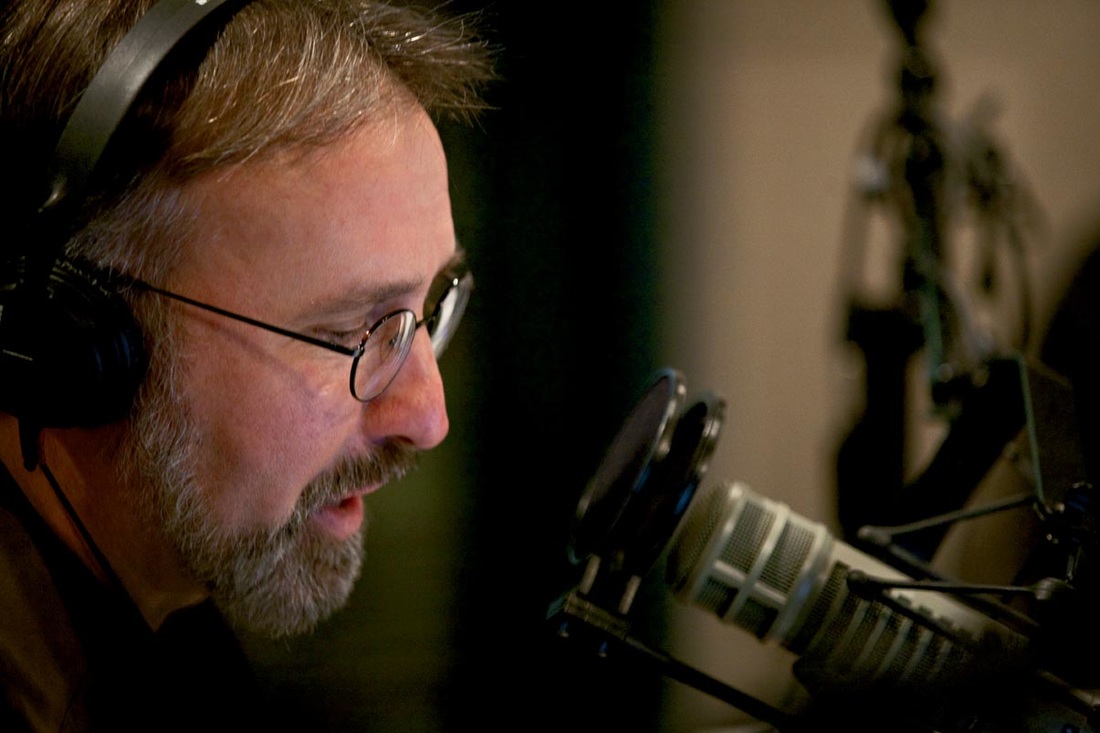

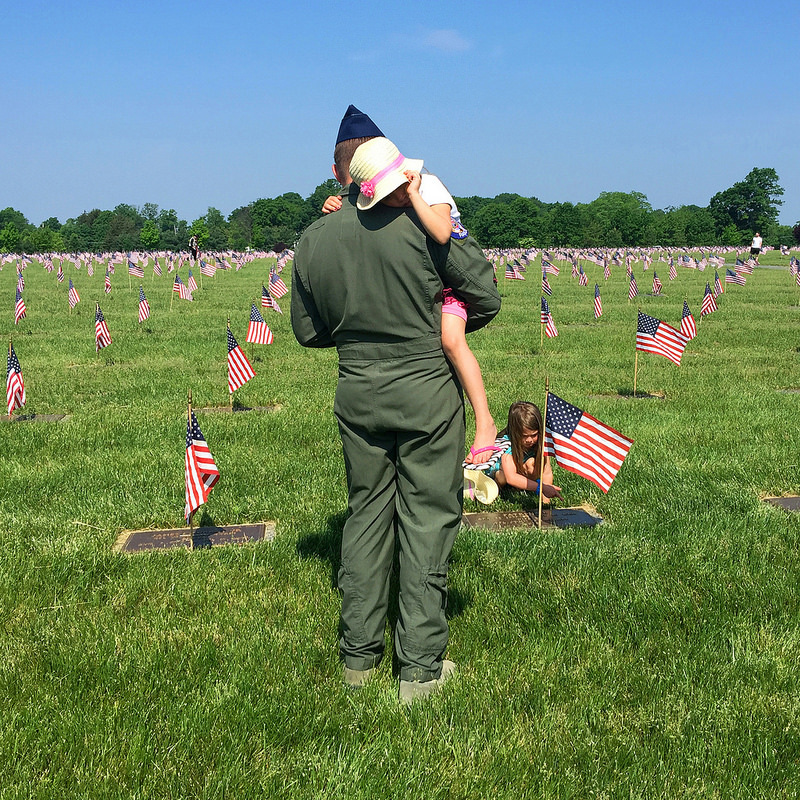
 RSS Feed
RSS Feed